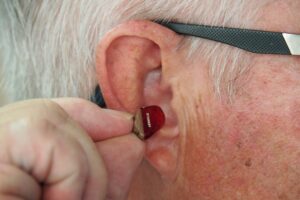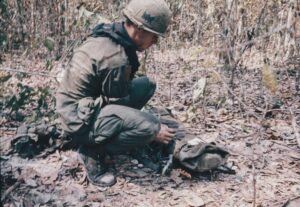Guide for Vietnam Era Veterans: Understanding and Navigating Your VA Benefits
For the dedicated men and women who served during the Vietnam Era (February 28, 1961 to May 7, 1975 for those who served in Vietnam; August 5, 1964 to May 7, 1975 for all others), your commitment and sacrifices are deeply acknowledged. The Vietnam War presented unique and often long-lasting challenges, most notably the widespread exposure to Agent Orange and other herbicides, alongside the intense psychological impact of combat.
Understanding the benefits and support available to you through the Department of Veterans Affairs (VA) is essential for ensuring you receive the care and recognition you’ve earned.
According to the most recent data from the Veterans Benefits Administration’s Fiscal Year 2024 Annual Benefits Report, certain health conditions are particularly prevalent among veterans of the Vietnam Era. This comprehensive guide will delve into the top 5 most common service-connected conditions affecting this generation of veterans.
Understanding Service Connection: The Basis for Your VA Benefits
The cornerstone of receiving VA disability benefits is service connection. This fundamental principle dictates that your current disability must be linked to your military service during the Vietnam Era. The VA recognizes that conditions can arise during or be aggravated by your time in uniform. For Vietnam Era veterans, this could involve direct combat injuries, illnesses stemming from environmental exposures like Agent Orange, or chronic health issues that manifested years after your service concluded.
Establishing service connection typically requires clear and concise medical documentation demonstrating:
- A current medical diagnosis: You must have a formally diagnosed physical or mental health condition.
- An in-service event, injury, or illness: A specific event, injury, or illness must have occurred during your Vietnam Era service that is believed to have caused or worsened your current condition. For Agent Orange-related claims, this is often the documented service in a qualifying location and timeframe.
- A medical nexus (link): A qualified medical professional must provide a reasoned medical opinion establishing a link between your in-service event, injury, or illness and your current disability. For presumptive conditions related to Agent Orange, this link is often already established by the VA.
Securing comprehensive medical documentation is crucial for a successful disability claim. If you have questions about your records or the process, remember that free consultations with licensed medical experts are available to help clarify your situation.

In-Depth Look at Most Prevalent Conditions Among Vietnam Era Veterans
Based on the latest numbers (Fiscal Year 2024 data), the following are the Top 5 most prevalent service-connected disabilities for Vietnam Era veterans:
- Tinnitus (11.3% of SC Disabilities): Tinnitus, the perception of sound when no external noise is present, affects a substantial 712,993 Vietnam Era veterans receiving benefits. This represents 11.3% of all service-connected disabilities for this era. Exposure to the high levels of noise from machinery, aircraft, and gunfire prevalent during the Vietnam War is a significant contributing factor.
Establishing service connection often involves documenting your Military Occupational Specialty (MOS) or specific duties that exposed you to loud noises. Service Treatment Records (STRs) containing audiograms (hearing tests) can be helpful, as can lay statements from yourself or fellow veterans detailing noise exposure.
Tinnitus can be claimed as a primary condition or secondary to hearing loss. Long-term management often includes coping strategies, sound therapy, and addressing any underlying conditions like hearing loss or anxiety, all supported by VA healthcare.
FAQ: I worked on aircraft engines during my time in Vietnam. Is my tinnitus likely service-connected?
Yes, your job likely involved significant noise exposure, which is a well-established cause of tinnitus. You will need a current diagnosis and a medical opinion linking your condition to your service.
- Hearing Loss (10.1% of SC Disabilities): Affecting 639,483 Vietnam Era veterans, hearing loss refers to a partial or total inability to hear. Similar to tinnitus, the intense noise environment of the Vietnam War, with its heavy reliance on weaponry, vehicles, and aircraft, contributed significantly to this condition.
Service connection often involves documenting your MOS or specific duties with significant noise exposure. While Service Treatment Records (STRs) with audiograms are valuable, even without in-service documentation, lay statements detailing noise exposure can be important evidence.
Hearing loss is often progressive, and long-term management includes regular hearing evaluations and the use of VA-provided hearing aids and assistive devices to maintain quality of life.
FAQ: I didn’t notice my hearing loss until years after I left Vietnam. Can it still be service-connected?
Yes, hearing loss can manifest or worsen over time due to initial noise damage. If you can provide credible testimony about your noise exposure during service and a medical professional links your current hearing loss to that exposure, it can be service-connected.
- Paralysis of the Sciatic Nerve (6.4% of SC Disabilities): Paralysis or neuropathy of the sciatic nerve, causing pain, numbness, tingling, and weakness in the lower back, hip, leg, and foot, affects 402,666 Vietnam Era veterans. This condition can result from direct injury, compression, or other nerve damage that may have occurred during military service.
Documenting an in-service injury or event that could have caused nerve damage is crucial for service connection. Medical evaluations linking your current sciatic nerve issues to your military service are also necessary.
Long-term management often involves pain medication, physical therapy, and in some cases, surgery, all available through VA healthcare.
FAQ: I injured my back during a training exercise in Vietnam, and now I have severe leg pain. Could this be sciatic nerve damage?
Yes, a back injury during service can lead to sciatic nerve issues. You will need to provide documentation of the in-service injury and a medical opinion connecting your current symptoms to that event.
- Post-traumatic Stress Disorder (PTSD) (6.1% of SC Disabilities): The psychological impact of the Vietnam War was profound, with 383,961 veterans currently receiving benefits for PTSD. This mental health condition can develop after experiencing or witnessing traumatic events such as combat exposure, witnessing death or injury, and the unique stressors of the Vietnam War.
Establishing service connection for PTSD requires documenting the stressful event(s) during your Vietnam Era service that led to the condition. This can be through your STRs, personal testimony detailing the events and their impact, buddy statements from fellow service members, and potentially combat action ribbons or similar documentation. A diagnosis from a mental health professional explicitly linking your current PTSD to your military service is essential.
The VA offers comprehensive mental health services, including therapy, medication, and support groups, to help veterans manage PTSD and improve their quality of life.
FAQ: I didn’t realize I had PTSD until many years after I came home from Vietnam. Can I still get VA benefits?
Yes. PTSD can have a delayed onset. A diagnosis from a mental health professional who can link your current symptoms to specific traumatic events during your Vietnam service is the key to establishing service connection.
- Diabetes Mellitus (5.5% of SC Disabilities): Affecting 349,880 Vietnam Era veterans, diabetes mellitus is a metabolic disorder characterized by high blood sugar levels.
Significantly, for Vietnam Era veterans who served in specific locations and timeframes, the VA presumes a link between certain conditions, including Type 2 Diabetes, and exposure to Agent Orange.
Specifically, veterans who served in specific areas of Vietnam between January 9, 1962, and May 7, 1975, are covered under this presumption. While the VA establishes the presumptive link, you will still need a current diagnosis of diabetes mellitus.
Ongoing management includes diet, exercise, medication, and regular monitoring, all of which are provided by VA healthcare.
FAQ: I served in the Mekong Delta during the Vietnam War and was recently diagnosed with Type 2 Diabetes. Is this automatically service-connected?
If your service falls within the specified dates and locations, the VA presumes a connection to Agent Orange. You will still need to provide documentation of your service in that area and your current diabetes diagnosis.

Beyond the Most Prevalent: Claiming Other Service-Connected Conditions
While this guide highlights the top 5 most common conditions, Vietnam Era veterans may experience a wide range of other service-connected disabilities. If you believe your health condition is related to your military service, even if it’s not listed here, you are strongly encouraged to file a claim. The fundamental process remains the same: gather comprehensive evidence linking your condition to your service.
Agent Orange and Blue Water Navy Veterans: It’s crucial to note that the definition of Agent Orange exposure has evolved over time, particularly with the passage of the Blue Water Navy Vietnam Veterans Act of 2019. This act extended presumptive Agent Orange exposure to veterans who served offshore in certain US Navy and Coast Guard ships operating in the territorial seas of Vietnam. If you are a Blue Water Navy veteran and have been diagnosed with a condition presumed to be linked to Agent Orange, ensure you are aware of your expanded eligibility for VA benefits.
Your Service is Honored, Your Health Matters
The sacrifices made by Vietnam Era veterans are deeply honored, and ensuring your health and well-being is a continuing priority. Understanding your potential eligibility for VA benefits and knowing how to navigate the claims process is a crucial step in receiving the care and recognition you deserve.
Remember, veterans deserve the support they’ve earned. If you want to learn more about medical evidence and how to strengthen your claim, contact our team of experts for a free medical evidence evaluation or explore the testimonials and stories of veterans we’ve assisted.











